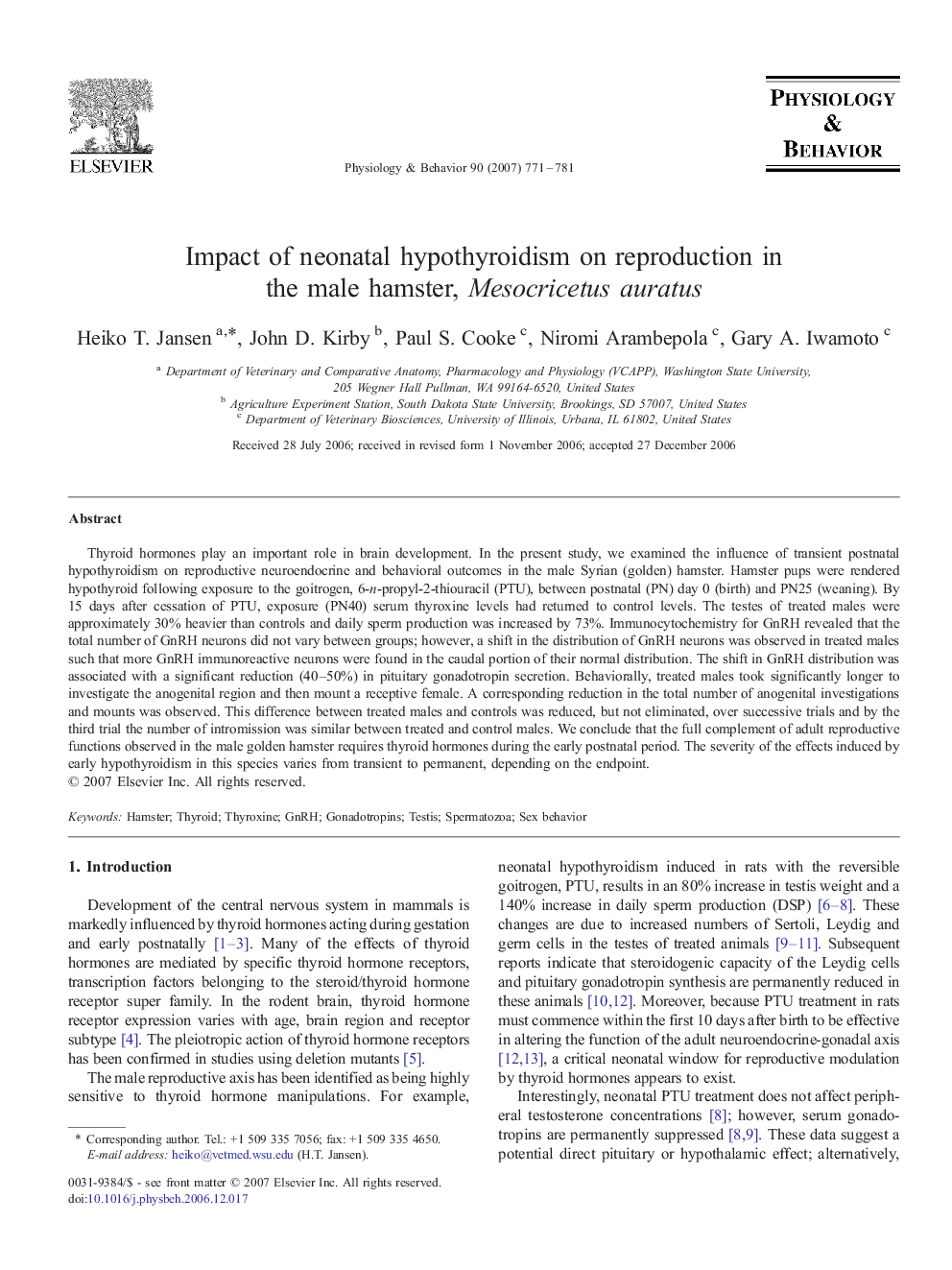| Article ID | Journal | Published Year | Pages | File Type |
|---|---|---|---|---|
| 2845878 | Physiology & Behavior | 2007 | 11 Pages |
Abstract
Thyroid hormones play an important role in brain development. In the present study, we examined the influence of transient postnatal hypothyroidism on reproductive neuroendocrine and behavioral outcomes in the male Syrian (golden) hamster. Hamster pups were rendered hypothyroid following exposure to the goitrogen, 6-n-propyl-2-thiouracil (PTU), between postnatal (PN) day 0 (birth) and PN25 (weaning). By 15Â days after cessation of PTU, exposure (PN40) serum thyroxine levels had returned to control levels. The testes of treated males were approximately 30% heavier than controls and daily sperm production was increased by 73%. Immunocytochemistry for GnRH revealed that the total number of GnRH neurons did not vary between groups; however, a shift in the distribution of GnRH neurons was observed in treated males such that more GnRH immunoreactive neurons were found in the caudal portion of their normal distribution. The shift in GnRH distribution was associated with a significant reduction (40-50%) in pituitary gonadotropin secretion. Behaviorally, treated males took significantly longer to investigate the anogenital region and then mount a receptive female. A corresponding reduction in the total number of anogenital investigations and mounts was observed. This difference between treated males and controls was reduced, but not eliminated, over successive trials and by the third trial the number of intromission was similar between treated and control males. We conclude that the full complement of adult reproductive functions observed in the male golden hamster requires thyroid hormones during the early postnatal period. The severity of the effects induced by early hypothyroidism in this species varies from transient to permanent, depending on the endpoint.
Related Topics
Life Sciences
Biochemistry, Genetics and Molecular Biology
Physiology
Authors
Heiko T. Jansen, John D. Kirby, Paul S. Cooke, Niromi Arambepola, Gary A. Iwamoto,
